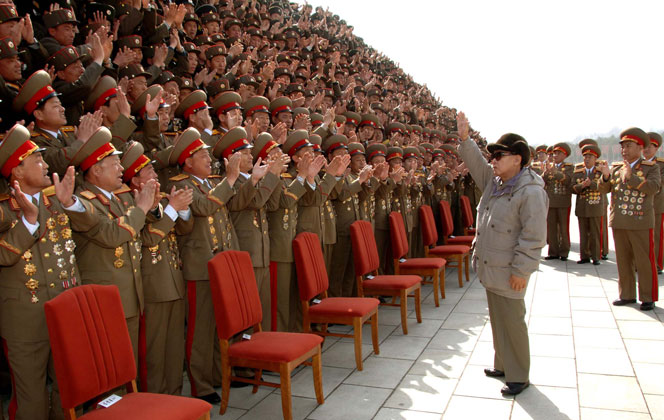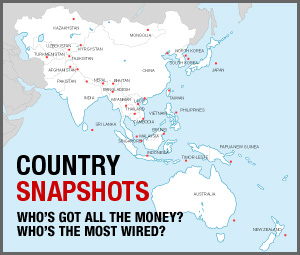APAC—Top 10 Stories of Decade
8. North Korea Tests NukesOctober 9, 2006 and May 25, 2009
On October 9, 2006, North Korea detonated a nuclear device underground at a site in the northeast of the country. The yield, estimated at less than 1 kiloton, suggested the test was a dud, and left open questions about just how much progress the Hermit Kingdom had made with its nuclear weapons program. After international condemnation, Pyongyang returned to the six-party disarmament talks on October 31, continuing its ongoing game of brinksmanship. Three years later, after Kim Jong-il appeared to have suffered at least one stroke, North Korea tested again, this time with more success. Speculation mounted that Kim was taking a hard-line stance to smooth the way for his son to take over in the event of his death. The UN imposed sanctions, North Korea responded with bellicosity. All of which has begun to prompt speculation of a possible end game for North Korea. An increasingly frail-looking Kim suggests at some point in the next decade a transfer of power will be required, and indications are that it won’t go as smoothly as it did in the 1990s, when the Dear Leader took over from his father, the Great Leader. (If Kim’s son does take power, it will be interesting to see if his PR handlers go saccharine or bombastic for the modifying adjective.) Dealing with any regime change could be one of the most delicate issues of the next decade, given the threat Pyongyang represents in conventional as well as nuclear terms. The key player here will be China, which will want to prevent a flood of refugees from crossing the border into its territory, yet will likely be uncomfortable with a unified, pro-West Korea.











